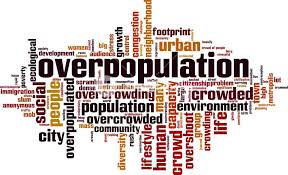
Memet Uludag
Alan Thornett’s article on ‘Covid-19: the ecological dimension’ http://www.globalecosocialistnetwork.net/2020/04/07/covid-19-the-ecological-dimension/ makes many valid and important points. He is right to stress that such pandemics ‘are an integral part of the global ecological crisis we are facing’ and are ‘on a par with the other existential threats to life on the planet’ including climate change. He is right to condemn the response of capitalist governments to the crisis and he is right to locate the root of the current pandemic in society’s ‘unacceptable’ relationship to nature particularly as expressed in mass industrial farming methods.
Less satisfactory is his emphasis in the second part of his article on growing urbanisation and population density. This carries with it the implication that the root of the problem is the growing size of the population. Alan calls for the process of urbanisation and population density, but he doesn’t say how, except a vague ‘we have to start discussing it’.
This is very problematic. Population growth has occurred not because people are having more babies, they are not, but because the death rate has fallen and the death rate has fallen because, due to better nutrition and better health care, infant mortality has been cut drastically and life expectancy has, on average, significantly increased. The concentration of this rising population in big cities is a product both of capitalist development drawing people into urban employment and people seeking to escape from rural poverty and backwardness in search of a better life. So how can this be reversed? Certainly it might be possible in a planned and democratic way in a future global ecosocialist society but I don’t think that what Alan means. Clearly under capitalism ‘the left’, either in opposition or in government would not be able to do it. It is very hard to see how it could be done except by the most authoritarian measures and it is would not seem to be an accident that the only serious attempt we have seen in this direction was by Pol Pot.
It also misses the fact that from a socialist point of view the concentration of a growing working class in cities increases the potential social and political power of that class and is therefore a huge positive force for change.
Of course it can be objected that population density is not the same as population size but Thornett does explicitly say ‘It also means stabilising human population growth’.
This is put very mildly but I do not believe ecosocialists should go down this route. The question of ‘overpopulation’ and population control has been much debated by socialists and ecosocialists. Several sponsors of GEN have written on this, most notably Ian Angus (together with Simon Butler) in their very comprehensive book Too Many People? and John Molyneux in his article ‘Climate change and the overpopulation argument’ in Irish Marxist Review 26 http://www.irishmarxistreview.net/index.php/imr/article/view/359/349 and I will not repeat their arguments here. I will just say that any concession to the notion that overpopulation is a ‘problem’ a) lets governments off the hook on poverty, homelessness, unemployment, climate change, pollution and every other social issue; b) opens the door to authoritarian ‘solutions’ as adopted in China with the one-child policy and India with forced sterilization; c) feeds directly into racism.
As a migrant worker and anti-racist activist I am particularly concerned about the last point. I am sure Alan Thornett does not intend this but if it is accepted that we are suffering from over population then it will inevitably feed into anti-migrant sentiment, and if the population is going to be culled we know it will be the ‘teeming masses’ of the Global South not the white middle classes of Europe who will be the first candidates. Thornett says he wants to achieve population stabilization by empowering women, a woman’s right to choose etc., but virtually the entire left has campaigned for decades for these things without a whiff of calling for population control.
Finally I just want to note that introducing the issue of population into the debate about pandemics involves a, doubtless unconscious, intellectual sleight of hand. Of course the outbreak of a toxic virus in a mega city such as Wuhan or New York may well claim more lives than a similar outbreak in a small town or isolated village in the same way that dropping a nuclear bomb on Shanghai or Tokyo would kill far more than did dropping one on Hiroshima (1945 population: 345,000). But that is the fault of the virus and the bomb and those that facilitated or dropped them, not of the people of Wuhan, New York or Shanghai for existing in too large numbers.
I am from Turkey and Istanbul is a city of 15 million population. The Coronavirus outbreak has triggered some discussion in Turkey about population density and size as a factor for the spread of the virus. In this head-count the issue of lack of public health provisions, shortage of testing and protecting millions of workers in Istanbul that are creating the vast percentage of the wealth in the country became secondary. To make this debate real: for millions of ordinary working class people in Istanbul, many of them domestic migrants that came from other parts of the country to find jobs, what were we to propose now if some started to blame them or their numbers for spreading the virus? The answer to this question should be part of our political vision.


Be the first to comment